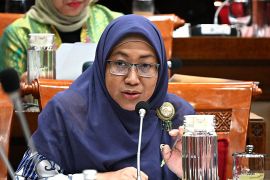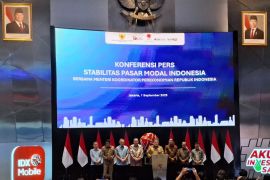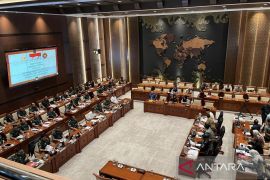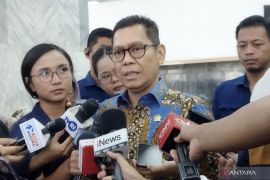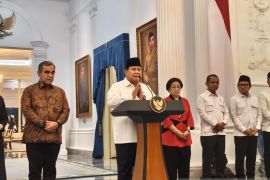"We carry out the labor inspection function by seeking information from our embassy in Beijing," Deputy Chairman of Commission IX Pius Lustrilanang told ANTARA here on Tuesday.
Responding to the commissions concern upon the flow of Chinese illegal workers in Indonesia, ambassador Rahardjo explained that visa-free visit program is a unilateral policy of the Indonesian government, not reciprocal, so there is no obligation for other countries to apply the same policy to Indonesians.
He also admitted that the policy is indeed very likely misused by some people to work in Indonesia illegally.
"Before the policy was implemented, I have proposed Minister of Law (and Human Rights) to designate special travel agent which is acknowledged by Chinese government in cooperation with Indonesian travel agents in order to control every (Chinese) tourist entering the country using free-visa visit," Rahardjo said.
Under such mechanism, every Chinese tourist requires to submit a copy of his passport to the Immigration Attache a week before arriving in Indonesia.
Therefore, the attache can provide a report to the Directorate General of Immigration on foreigners who are coming to the country in order to reduce the potential of visa-free misuse for illegal activities and focus on the efforts to increase the number of Chinese tourist visits which has been the initial objection of establishing free-visa policy.
Regarding Chinese investment that being associated to the number or workers, Rahardjo continued, it has been actually anticipated by the Investment Coordinating Board.
"Once the investment application is approved, the feasibility study has actually contained the number of skilled workers from China that is out of the unskilled laborers which we can provide," he pointed out.
On the other hand, Indonesian illegal workers also become an issue in China.
Violating the Chinese governments regulation of prohibiting foreigners working in domestic sectors, those Indonesians usually enters China by trafficking in persons.
The number of Indonesians illegally working in China cannot be ascertained, since they can only be identified if being found to have violated the residence permit.
"Last year we handled 54 overstay cases, while up to August this year we have been handling 21 cases," Rahardjo said. (*)
Editor: Heru Purwanto
Copyright © ANTARA 2017


